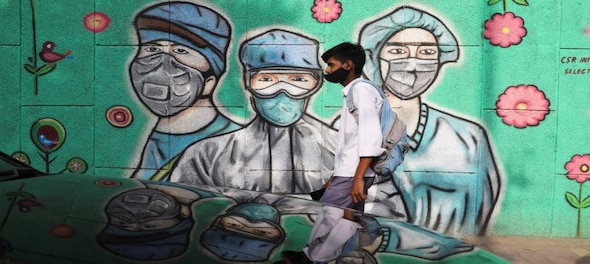
Mumbai has extended Section 144 of CrPC amid COVID-19 variant Omicron threat. The Mumbai Police have extended the restrictions till December 31 for now and urged all to follow Covid Appropriate Behaviour as defined in a previous notification dated November 27.
What is Section 144 of CrPC and what is the punishment for breaking it?
Section 144 of the Criminal Procedure Code, 1973, has a wide-ranging scope in terms of its power and application. The provision of the law gives the power to the District Magistrates, Sub-divisional Magistrates or any other Executive Magistrates to prohibit the assembly of five or more individuals in an area. The order is imposed "to prevent, or tends to prevent, obstruction, annoyance or injury to any person lawfully employed, or danger to human life, health or safety, or a disturbance of the public tranquility, or a riot, of an affray".
Any person who is found in contravention of the restrictions is stated to be part of an 'unlawful assembly' can be booked for engaging in rioting under the provisions of Section 146 of the Indian Penal Code. Under the provisions of Sections 141-149 of the IPC, punishment for rioting can be rigorous imprisonment for three years and or a fine.
However, punishment for breaking Section 144 of CrPC is determined by the nature of the offence and the intention of the individuals breaking it. Most offenders, if they are not trying to worsen the peace, order or stability in the area, are booked under Section 188 of the IPC; "Disobedience to order duly promulgated by public servant." Under this section, individuals may face imprisonment of up to six months, or a fine of up to Rs 2,000, or both.
Other provisions of Section 144 of CrPC include the power to prohibit assemblies of all kinds, the power to block internet access, restriction on carrying of weapons into an area. Educational institutions are also closed while Section 144 is active, and there is no immunity from the provisions of the section just by the virtue of being on an educational campus.
What is curfew?
Curfew, while similar in nature, is usually issued on the advice of the collector and the police commissioner. Curfew is also issued under the provisions of Section 144 of CrPC, which allows the government servant to "direct any person to abstain from a certain act or to take certain order with respect to certain property in his possession or under his management."
Under orders of curfew, individuals are only permitted to go out of their homes within certain time periods. Markets, schools, colleges and offices remain closed and restrictions on traffic are also often imposed. Only emergency services remain open without any additional orders. Curfew is often imposed along with restrictions of assembly but doesn’t have to necessarily so. Violation of curfew draws punishment under Section 188 of the IPC, with imprisonment of up to six months, or a fine of up to Rs 2,000, or both.
Maharashtra has so far reported 32 cases of the Omicron strain, including in the Mumbai Metropolitan Region (MMR). Omicron, classified as a -- variant of concern -- by the WHO, was detected last month in southern Africa and it has has been causing alarm all over the world.
First Published: Dec 16, 2021 4:18 PM IST
Check out our in-depth Market Coverage, Business News & get real-time Stock Market Updates on CNBC-TV18. Also, Watch our channels CNBC-TV18, CNBC Awaaz and CNBC Bajar Live on-the-go!


Lok Sabha elections: 4th phase sees over 68% voter participation, West Bengal leads with 76% turnout
May 14, 2024 1:47 AM
Lok Sabha elections phase 4 witnesses around 63% voter turnout, experts weigh in on key contests
May 14, 2024 12:06 AM
Lok Sabha Election 2024: Shiv Sena UBT’s Arvind Sawant highlights Uddhav Thackeray's vision for Mumbai’s progress
May 13, 2024 9:21 PM
Exclusive interview: 'Southern states will be a big surprise,' says PM Modi
May 13, 2024 9:05 PM

